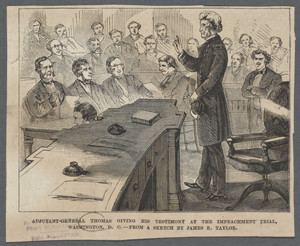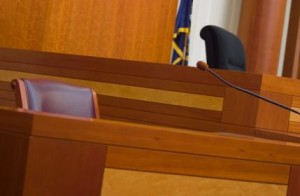“DON’T GO TO THE PEN, SEND A FRIEND”
Cooperating Witnesses, The Race to be First in the Door:
In many multi-defendant cases, the prosecutor evaluates which defendants have the ability to help the prosecution. In white-collar prosecutions, there is sometimes a race to see which defendants can get in the door of the U.S. Attorney’s office to cooperate against the others first.
The decision of how to use an informant or cooperating co-defendant in any given case is usually made primarily by the line prosecutor. The law enforcement agents working the case have a lot of influence. The prosecutor wants to find the truth. The cooperating witness has details regarding what the prosecutor thinks is the truth; however, they also have the incentive to embellish the description of the criminal conduct of the defendant. A cooperating witness does not get a reduced sentence for providing evidence of a defendant’s innocence.
View Testimony of Cooperating Witness with Greater Caution
In state court and in federal court, the jury is instructed to consider the motives of a cooperating witness.
For example:
You have heard testimony from [name of witness], a witness who
[received immunity. That testimony was given in exchange for a promise by the government that [the witness will not be prosecuted] [the testimony will not be used in any case against the witness]];
[received [benefits] [compensation] [favored treatment] from the government in connection with this case];
[[admitted being] [was alleged to be] an accomplice to the crime charged. An accomplice is one who voluntarily and intentionally joins with another person in committing a crime];
[pleaded guilty to a crime arising out of the same events for which the defendant is on trial. This guilty plea is not evidence against the defendant, and you may consider it only in determining this witness’s believability].
For this reason, in evaluating the testimony of [name of witness], you should consider the extent to which or whether his testimony may have been influenced by any of these factors . In addition, you should examine the testimony of [name of witness] with greater caution than that of other witnesses.
Ninth Circuit Model Criminal Jury Instruction 4.9, emphasis added.
The instruction to consider accomplice testimony with “greater caution” is appropriate regardless of whether the accomplice’s testimony favors the defense or prosecution. United States v. Tirouda, 394 F.3d 683, *687-88 (9th Cir. 2005), cert. denied, 547 U.S. 1005 (2006).
As a practical matter, prosecutors have always wanted corroboration – such as documentary evidence – to support informant testimony. However, sometimes the corroboration is ambiguous, at least until it is given an incriminating interpretation by the informant. Another problem is that the line prosecutor can sometimes be persuaded to buy an informant’s story because it falls in line with the prosecutor’s pre-existing theory of the defendant’s guilt. This is not a criticism of prosecutors, it is a fact of human nature, sometimes called confirmation bias – the tendency to search for, interpret, favor, and recall information in a way that confirms one’s beliefs or hypotheses, while giving disproportionately less consideration to alternative possibilities. Confirmation bias also causes prosecutors (as it causes all people) to interpret ambiguous evidence as supporting their existing position.
Justice Stephen Trott is a justice on the 9th Circuit Court of Appeals, and a former federal prosecutor. He has written and lectured on prosecutorial ethics. He recognizes that the use of cooperating witnesses is necessary in prosecutions, but he emphasizes the need for careful corroboration of their testimony, and great caution in accepting what cooperators say:
“…they want to minimize what they do. They gild the lily. They are trying to get something by making themselves look better than they are. Prosecutors think they’ll get a better deal if they get convictions in the cases where coöperators testify. They are motivated by terrible things. Young prosecutors aren’t even close to being ready for this stuff. These coöperators are sociopaths.”
Justice Steven Trott, as quoted by Jeffrey Toobin, Casualties of Justice, The New Yorker, January 3, 2011.
Cross-Examining the Cooperating Witness
The criminal defense lawyer must start preparing for cross-examination early in the case. Make discovery requests for Brady and Giglio material, rap sheets, cooperation agreements, reports of interviews, agent notes, etc. If the cooperator suffered a previous criminal conviction, get the pre sentence report and all sentencing documents. Read everything in the court file, sometimes pretrial motions have factual allegations that can be useful. If the cooperator had a contested bail hearing on the present case, get a transcript. The prosecutor may have made statements to the magistrate (at the bail hearing) regarding the outrageous criminal conduct the cooperator was involved in, and the punishment he faced, before he came over to the side of the government. Have your private investigator do a full background check. This will include civil lawsuits and divorce files, and prior criminal records.
You will sometimes get surprises at trial. A cooperating witness may testify to many more criminal acts by the defendant than were described in the initial interviews of that witness. Some prosecutors will give this new information to you, but some will not, saying it was trial preparation, work product, etc. It is often necessary to subpoena the agents who wrote the reports that do exist of interviews with the cooperator (back in the early interview stages before the agents stopped remembering to bring pencils to their interviews.) You will ask the cooperator about the initial report on cross, and maybe even show it to him to refresh his recollection. You can then decide if you are going to call the agent in rebuttal. Either way, you can sometimes you can show fabrication by the cooperator, and you can often at least establish embellishment over time against your client.
On occasion, your cross examination will be limited to the impeachment material and the motivation of the cooperator to lie. You will not get tangled up in factual arguments with the witness, or bring up minor discrepancies between the trial testimony and previous statements of the witness. In one case, the defense lawyer had a large binder with every statement made by the cooperating witness, who was very articulate and persuasive. In an exercise of great restraint, however, the lawyer put the binder away and the cross examination was this:
Q: On October 4 of last year, did you appear in court on an indictment charging you with perjury?
A: Yes.
Q: On that date, did you plead guilty to perjury?
A: Yes.
Thank you. No further questions.
(The case resulted in an acquittal.)
Cases involving cooperating witnesses are common, and the implications are scary. Justice Trott estimates that 15% of convictions of defendants who are later proved innocent by DNA or other evidence involved cooperating witnesses.
Senator Ted Stevens
The trial, conviction, and then post-trial dismissal of the case against Senator Ted Stevens of Alaska is the story of the use and then misuse of a cooperating witness.
Stevens was a historic figure in Alaska, a five-time senator, and a former prosecutor. He was indicted for filing false financial disclosures as a senator. It was alleged that he failed to report more than $250,000 in free labor and materials in connection with the renovation of a second home. He had paid for some of the work and materials, but allegedly not all of it.
Stevens was tried in 2008, in Washington DC, where the Senate financial discloser forms are filed. The primary witness against Stevens was the contractor who had done the renovation, Bill Allen. The defense had provided the prosecution with a letter from Stevens to Allen which they viewed as exculpatory, in which Stevens insisted on getting a bill and paying in full for all of the renovation, and said that a mutual friend, Bob Persons, would talk to Allen more about it. On direct examination of Allen, the prosecutor showed this letter to him, and Allen said that Persons told him to disregard the letter from Stevens, which Stevens sent because, “Ted is covering his ass”. Stevens was convicted.
Ted Stevens’ conviction was set aside because an FBI agent involved in the case filed a formal complaint about another agent and several prosecutors. The primary basis of this complaint was that the prosecution trial team had interviewed a witness from Alaska. Both sides had this witness under subpoena, but the prosecution sent the witness back to Alaska when they did not like the witness’s testimony. This led to an investigation that disclosed a report of an interview (ROI) of Allen, the primary witness who had cooperated against Stevens, that dramatically contradicted his trial testimony, and which had not been disclosed to the defense prior to trial. After defense attorneys gave the government attorneys the letter from Stevens to Allen demanding a bill, a group of FBI agents and federal prosecutors brought Allen in to talk about it. Allen remembered the letter. But when they asked him if he spoke to Bob Persons about it, Allen told them he had not. This ROI showed that twisted Stevens’ best evidence of innocence into evidence of a cover up. Attorney General Eric Holder made the decision to dismiss the Stevens case in April 2009. Stevens died in an airplane crash in August 2010.
A lot of different federal prosecutors worked on the Stevens case. It was never determined who was responsible for withholding the ROI documenting Allen being confronted by the letter in which Stevens requested a bill. Brady violations of this kind could be lessened by open file discovery policies, but that is a discussion for another day.
The jury convicted Stevens even though he was defended by a very good trial attorney, Brendan Sullivan. Sullivan attacked the credibility of the cooperating witness, Allen, on other grounds. But the jury believed the cooperating witness. It was random good luck by which the complaint by the FBI agent (which related to issues unrelated to the non-disclosed ROI) led to the disclosure of the ROI and subsequent dismissal of the case. One of the frightening things about Brady violations is that by their nature, they are unlikely to be discovered.
It is usually the case that the criminal defense lawyer is the last line of defense. “This Court has long recognized the serious questions of credibility informers pose… We have therefore allowed defendants broad latitude to probe informers’ credibility by cross examination and have counseled submission of the credibility issue to the jury with careful instructions.” Banks v. Dretke, 540 U.S. 668, *701-02 (2004). Jurors do have an instinctive mistrust of the cooperating witness. They are going to pay careful attention to your cross examination, and then again to your final argument discussing the cooperating witness. With a lot of preparation and a skillful cross-examination, you may expose the lack of trustworthiness of the cooperator’s testimony, and get an acquittal for your client.
In August of 2017, Orange County Superior Court Judge Thomas Goethals ruled the DA of that county is barred from seeking the death penalty against Scott Dekraai. In 2008, Dekraai shot eight people to death in a Seal Beach salon, in front of witnesses. Dekraai also confessed. Most DA’s would have thought that was enough evidence, but the Orange County DA decided to use information from a jailhouse informant against Dekraii. Dekraai’s public defender argued that the Orange County DA and Sheriff’s department were running a sophisticated jailhouse informant system to develop information against defendants, and then concealing the information from defendants and their lawyers. The court of appeals agreed. As a result, Dekraii will serve life in prison but will not be tried on death penalty charges.
